|

Winner:
Modern technology
 The world develops fast with time. Technology too develops with it.
Modern technology in the 21st century is amazing. It has advantages and
disadvantages and has changed our lives in an amazing way. The world develops fast with time. Technology too develops with it.
Modern technology in the 21st century is amazing. It has advantages and
disadvantages and has changed our lives in an amazing way.
The development of technology has made life easy for the people in
the world. It makes our lives comfortable and luxurious. Today modern
technology is applied in many industries. It has become an essential
need.
In modern technology, people’s minds have changed tremendously. As a
result sometimes people do unwanted things. Money-minded people do
various wrong things as there is no one to spot who did them. Many
teenagers become victims of these effects.
As schoolchildren we must be intelligent and clever enough to
identify the good and bad effects of modern technology. If we do so, we
can use technology in a productive way.
K.M.T. Maheli Kulathunga, Grade 10A, Holy Family
Balika Vidyalaya, Kurunegala.
Winner:
The jak tree
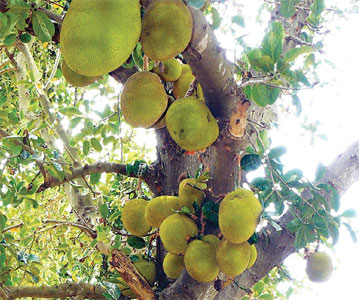 The jak tree is known as “the rice tree.” We find jak trees almost in
every home garden. It is a big tree. The leaves are small and dark
green. The jak tree is known as “the rice tree.” We find jak trees almost in
every home garden. It is a big tree. The leaves are small and dark
green.
Jak is an important food supplement for Sri Lankans. It is
nutritious. We eat this fruit in every stage. Boiled jak and scraped
coconut is a tasty meal.
Tender jak fruit is called Polos. We can prepare it as a delicious
curry. The ripe jack fruit is called Waraka. Therefore, it is a valuable
tree for Sri Lankans.
Tharusha Prabashana, Grade 8B, Lalith Athulathmudali
College, Mt. Lavinia.
Winner:
Vesak festival
This year Vesak was celebrated on May 14. It is an important festival
for Buddhists all over the world. Vesak marks the Buddha’s Birth,
Enlightenment and Parinibbhana.
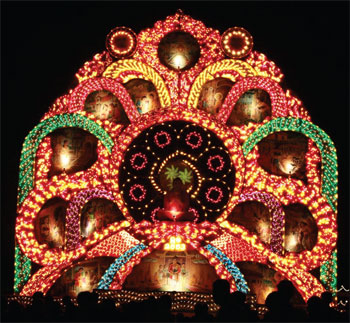 On Vesak day Queen Mahamaya gave birth to Prince Siddhartha in
Kapilavastupura. He attained Enlightenment under a Bo tree and was named
Gautama Buddha. On Vesak day Queen Mahamaya gave birth to Prince Siddhartha in
Kapilavastupura. He attained Enlightenment under a Bo tree and was named
Gautama Buddha.
The Buddha taught people to follow the right path and be truthful to
all mankind.
Many activities are organised on this day, such as sil campaigns,
poojas, dansal, pandals and lanterns. Temples are filled with many
devotees who observe sil. People offer flowers, light lamps and incense
and worship the Buddha. They wear white dresses and participate in many
religious activities.
On this day devotees offer alms too. During this week, selling of
alcohol and meat is prohibited.
Buddhists decorate their homes and arrange various cultural events on
this day.
Although I am not a Buddhist, I go to temple on this day. There are
competitions organised by different organisations on making Vesak
lanterns in various parts of the country. Many types of Vesak lanterns
are made using different materials and displayed. People go in groups to
see the illuminations and decorations.
Vesak is a colourful and peaceful day.
B. Harshika, Grade 6, Kingston College
International, Colombo 15.
Winner:
The importance of studying history
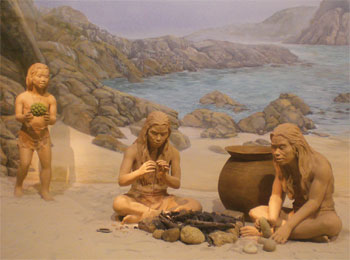 By studying history one gets the opportunity to learn about the human
civilisation from the beginning. A man who does not know history is an
incomplete person. A clear and thorough knowledge about the history of
one’s motherland and the heritage is valuable. By studying history one gets the opportunity to learn about the human
civilisation from the beginning. A man who does not know history is an
incomplete person. A clear and thorough knowledge about the history of
one’s motherland and the heritage is valuable.
History bonds together the past, present and the future of human
activities. Similarly, a person to be a thorough and strong one, he or
she should have a proper understanding of their civilisation and culture
by studying the history of their motherland.
Shahira Ifthikar, Grade 6, UNH International School,
Wattala.
Aristotle, the great philosopher
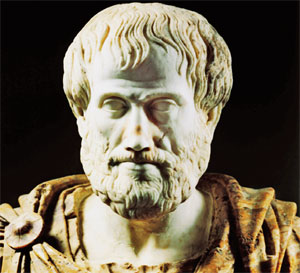 Aristotle was born in 384 B.C in ancient Macedonia. It is the present
northern Greece. His father was a doctor. When Aristotle was 17 years
old, he went to Athens. Athens was the biggest and richest city in
ancient Greece. Aristotle was born in 384 B.C in ancient Macedonia. It is the present
northern Greece. His father was a doctor. When Aristotle was 17 years
old, he went to Athens. Athens was the biggest and richest city in
ancient Greece.
He stayed in Athens for most of his life studying and teaching. He
set up his own school where students discussed new ideas while strolling
in the gardens.
Aristotle lived in Macedonia for sometime. He worked as a tutor to
Prince Alexander, who later was known as Alexander the Great. Aristotle
returned to Athens in 335 B.C. Alexander died in 323 B.C.
Aristotle, the great philosopher, was forced to leave his school in
Athens. He died in 322 B.C.
H. M. Pamoda Udani Herath, Grade 7C, Kali/Saranath
College.
Deepavali festival
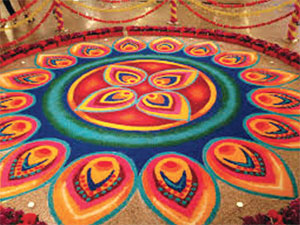 Deepavali is a Hindu festival. It is celebrated by the Hindus in
September. We wear new clothes and go to temple. We visit our relatives
and friends. Deepavali is a Hindu festival. It is celebrated by the Hindus in
September. We wear new clothes and go to temple. We visit our relatives
and friends.
Deepavali is celebrated in remembrance of the god who killed demons.
We eat a lot of sweets and have a delicious lunch in the afternoon.
We sometimes go to the cinema to see a film. We have singing and
dancing programs. We also have beautiful fireworks at night.
Tharun Srinath, Lexicon International School, Kandy.
Three courageous children
One upon a time, in a little village lived three children named Dick,
Anne and John. The name of this village was Kingsbury. Their mother had
died when the youngest child John, was still a baby. And their father,
who was a farmer, took care of the children.
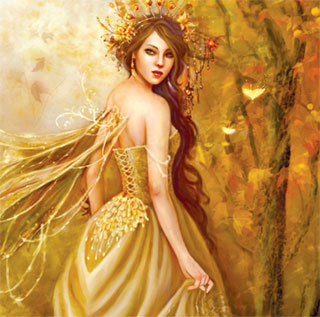 One day, their father became ill. Now, their father could not work to
feed the children and keep them alive. One day, their father became ill. Now, their father could not work to
feed the children and keep them alive.
The eldest, Dick was anxious to do something. Then, he thought of
finding a job for himself. So, Dick together with Anne and John set off
looking for work. While on their way, they met a seller of antiques. The
man asked the children where they were going. When they told him, he
said, “I cannot help you, but I hope this will.” It was a map. Then the
man said, “I do not know what it is, but there is a legend that it can
help people. It will bring people out of danger, but it cannot be used
in greed.”
Dick thought for a moment and looked at the others. They then
followed the map and reached a bare land. There was nobody. Then
suddenly with a heavy wind a fairy appeared. She came near the
frightened children. “I have been waiting for you to come into my house
and then I will tell you what to do.”
The fairy told the children that they will find a treasure in the
evil magician's palace. She led them to his palace, but said that she
will not be able to go in. The fairy left. Dick and John went inside,
while Anne stayed outside and stood guard. Dick found the treasure. The
magician had not been in and so finding it was easy. When Dick and John
came out, Anne was crying. A vulture had taken the map from her. Now the
children had no way of finding their way home.
They were afraid of being caught by the evil magician. They prayed
and the fairy suddenly appeared. She said, “Read this spell” handing out
a scroll. Dick read it and instantly they were back in their home in the
village. With the treasure the children had found, they bought medicines
for their father and cured him. Soon Dick found a job too.
Now, even if their father falls ill again, Dick would earn for the
family. They divided the rest of the treasure among the people in the
village. They had nothing to worry about thereafter.
Kiana Goonewardane, Grade 5, St. Bridget's Convent,
Colombo 7.
The father of free education
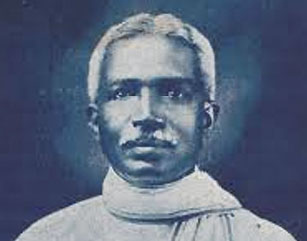 Dr. C.W.W. Kannangara is considered the father of free education.
Christopher William Wijekoon Kannangara was born on October 13, 1884 at
Randombe, a suburb of Ambalangoda. Dr. C.W.W. Kannangara is considered the father of free education.
Christopher William Wijekoon Kannangara was born on October 13, 1884 at
Randombe, a suburb of Ambalangoda.
His father Daniel Wijekoon Kannangara was a native of Loolbaddawa of
Ittepana in the Kalutara district. He was the deputy fiscal of the
Balapitiya courts. His mother was Emali Wijesinghe of Weebadu Walauwa in
Wewala, Hikkaduwa.
Kannangara had his education at the Wesleyan High School in
Ambalangoda and Richmond College, Galle as a free scholar.
He later practised as a lawyer at the Galle Bar. He represented the
Southern province in 1920 Legislative Council and the Galle district in
the reformed Legislative Council of 1924. He represented the Galle
constituency in the first State Council elected in 1931 after the
Donoughmore reforms. At the age of 38, Kannangara married Edith
Weerasooriya, daughter of the Galle Mudliyar I.C Weerasooriya of Kandy.
The concept of Central Colleges was Kannangara’s greatest contribution
to the development of education. In 1940, there were nine Central
Colleges functioning at Minuwangoda, Veyangoda, Kattankudy, Ibbagamuwa,
Dickwella and Mawathagama.
There were 22 Central Colleges by 1944. The number was increased up
to 50 by 1946. Kannangara is a national hero who paved the way to both
urban and rural students to receive free education. His name is already
written in letters of gold in the history of Sri Lanka.
M.F. Fathima Farah, Grade 9, R/EH/Dharmapala
College.
I am a big tree...
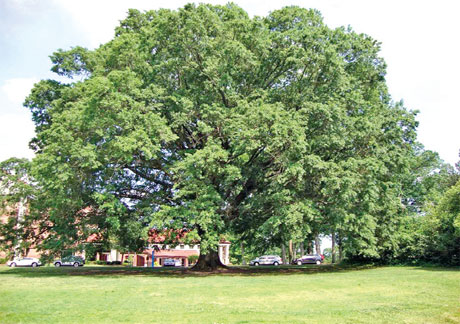 I am a big tree in a beautiful garden. Nobody is interested in
looking after me now. Everybody looked after me when I was a small
plant. They watered me, fed me with fertiliser and covered my roots with
soil. When the wind blows, my green leaves shake, but it cannot shake my
branches. I am a big tree in a beautiful garden. Nobody is interested in
looking after me now. Everybody looked after me when I was a small
plant. They watered me, fed me with fertiliser and covered my roots with
soil. When the wind blows, my green leaves shake, but it cannot shake my
branches.
I am stronger than the other trees. In this garden, I see all the
small plants moving back and forth when the wind blows hard. Most people
come close to me and I give shade to them. Some come and read books and
play under my shade. I always hear what they talk, some share their
worries with each other. But I stand still forever bearing everything
that I hear.
People write on my trunk with pencils. I bear all this happily. Not
only human beings, animals also keep company with me. Birds make nests
on my branches, and big birds feed their little ones on the branches. I
feel sad when the birds grow up and fly away.
Do you know the secret of my long life? Treat everyone alike whoever
they are and be a useful person to society.
Sahasra Weerasinghe, Grade 9, B/Viharamaha Devi
Balika, Badulla. |

